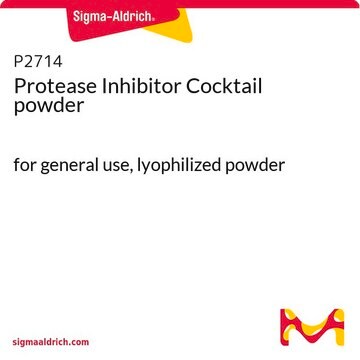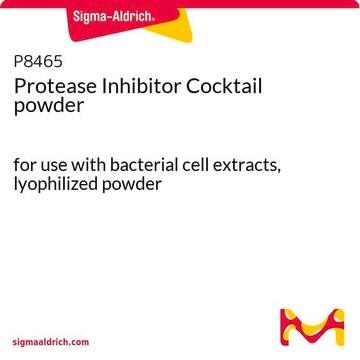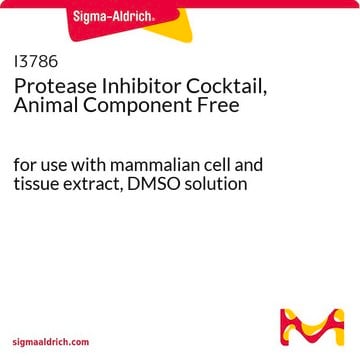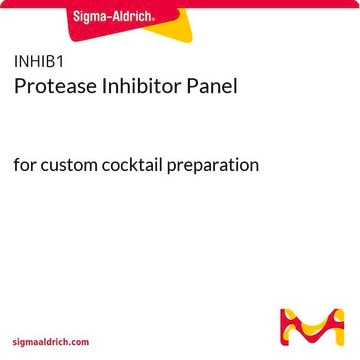I3911
Protease Inhibitor Cocktail
Animal-Free, lyophilized powder, for the inhibition of serine, cysteine, aspartic and metalloproteases, for general use, lyophilized powder
Synonym(s):
protease inhibitor
About This Item
Recommended Products
Product Name
Protease Inhibitor Cocktail, Animal Component Free, for general use, lyophilized powder
Quality Level
form
lyophilized powder
solubility
water: soluble
storage temp.
−20°C
Looking for similar products? Visit Product Comparison Guide
Related Categories
General description
Specificity
Application
Components
Aprotinin
Bestatin
E-64
EDTA
Leupeptin
Quantity
Not all extracts contain the same levels of endogenous enzymes, and it may be necessary to adjust the volume of cocktail required.
Physical form
Signal Word
Danger
Hazard Statements
Precautionary Statements
Hazard Classifications
Eye Dam. 1 - Skin Corr. 1A
Storage Class Code
8A - Combustible corrosive hazardous materials
WGK
WGK 3
Flash Point(F)
Not applicable
Flash Point(C)
Not applicable
Choose from one of the most recent versions:
Already Own This Product?
Find documentation for the products that you have recently purchased in the Document Library.
Customers Also Viewed
Related Content
Select different protease inhibitor types based on your needs to prevent protein degradation during isolation and characterization and safeguard proteins in sample prep.
Select different protease inhibitor types based on your needs to prevent protein degradation during isolation and characterization and safeguard proteins in sample prep.
Select different protease inhibitor types based on your needs to prevent protein degradation during isolation and characterization and safeguard proteins in sample prep.
Select different protease inhibitor types based on your needs to prevent protein degradation during isolation and characterization and safeguard proteins in sample prep.
Our team of scientists has experience in all areas of research including Life Science, Material Science, Chemical Synthesis, Chromatography, Analytical and many others.
Contact Technical Service
















